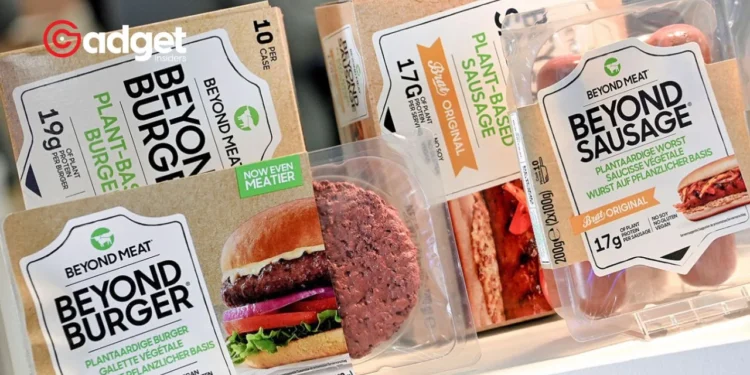In recent years, the rise of plant-based meat alternatives has been unstoppable, propelled by claims of environmental friendliness and health benefits. However, a new wave of research suggests that these meat substitutes might not be the nutritional boon consumers expect.

The Not-So-Healthy Reality of Plant-Based Meats
A recent study published in The American Journal of Clinical Nutrition sheds light on the nutritional differences between plant-based meat analogs (PBMAs) and their animal-based counterparts. The findings are turning heads and sparking debates across nutritional science communities.
The research highlights that contrary to popular belief, plant-based meats might not offer the same health benefits as real meat. In an eight-week analysis comparing the protein content and nutritional impact of PBMAs and actual meat, the results were somewhat surprising.
Real beef consistently provided more protein and was less likely to influence blood sugar control negatively, an aspect not previously considered in the discussion of plant-based dietary benefits.
Moreover, while PBMAs boast lower levels of harmful fats and no cholesterol, they are not without their drawbacks. High levels of sodium in some plant-based options can pose risks for individuals with hypertension, overshadowing their purported cardiovascular benefits.
Fake meat can cause real health risks — experts call for caution amid plant-based craze https://t.co/cEeOjeCrr1 pic.twitter.com/VtmWS0lG83
— New York Post (@nypost) April 13, 2024
A Closer Look at Nutritional Content
The study also revealed that plant-based meats are typically higher in potassium and calcium. This might sound beneficial, but it comes with a catch: these higher levels could potentially interfere with blood sugar control, an issue rarely associated with traditional meat consumption.
This research calls into question the blanket health claims made by many plant-based meat manufacturers. It suggests that while these products can play a role in a diverse diet, they may not be the panacea for health they’re often portrayed to be.

The Market Reacts
Despite the health concerns, the market for plant-based meats continues to grow. Beyond Meat, one of the most recognizable names in the industry has responded to health critiques by reducing the fat content in its products by 60%. However, this hasn’t shielded the company from fluctuating sales and consumer skepticism.
Celebrity Endorsements and Consumer Confidence
The sector has seen endorsements from high-profile figures like Bill Gates, who remains optimistic about the future of meat alternatives.
During a recent online discussion with Redditors, Gates expressed confidence in the evolving quality of these products, suggesting that they have the potential to reach parity with animal meats in taste and health benefits.

The Bottom Line
As plant-based meats continue to evolve, both in terms of quality and nutritional content, consumers are encouraged to stay informed and consider these products as part of a balanced diet rather than a complete substitute for traditional meats.
With ongoing research and improvements, the future of plant-based meats could still hold significant promise for those looking to reduce their meat consumption without compromising on health.
While the allure of plant-based meats is undeniable, it is crucial to approach them with a balanced perspective. As the research evolves, so too should our understanding of what these products can realistically offer in terms of health benefits.










